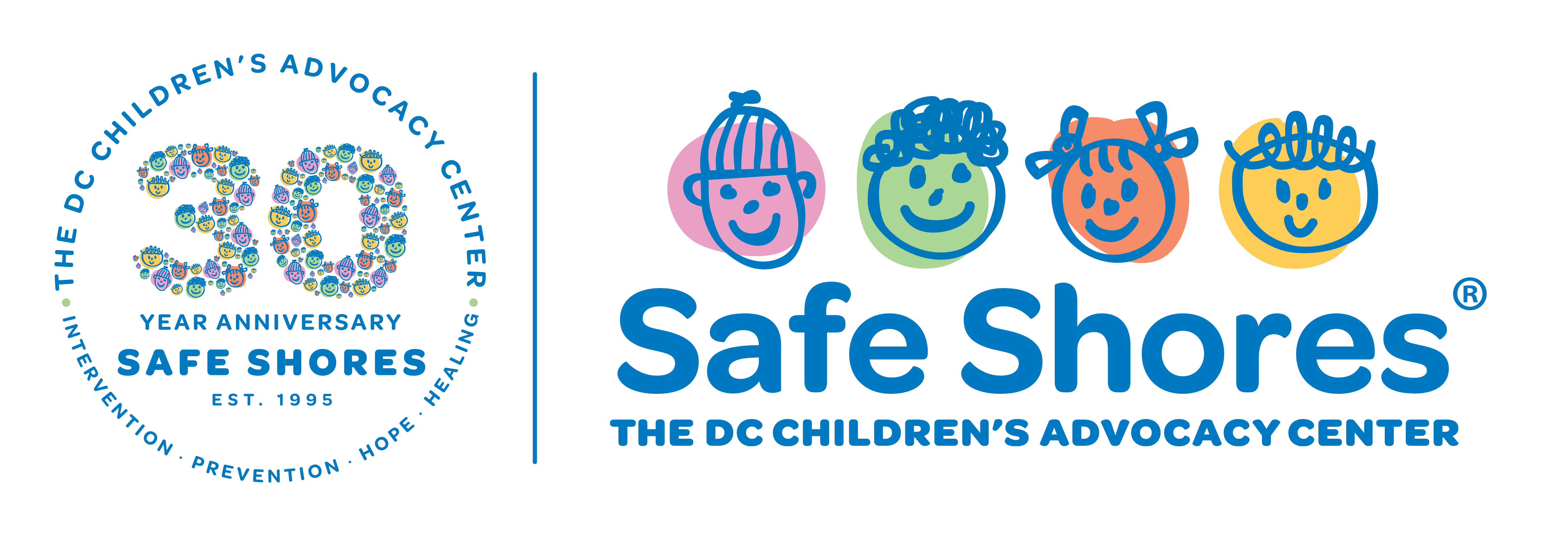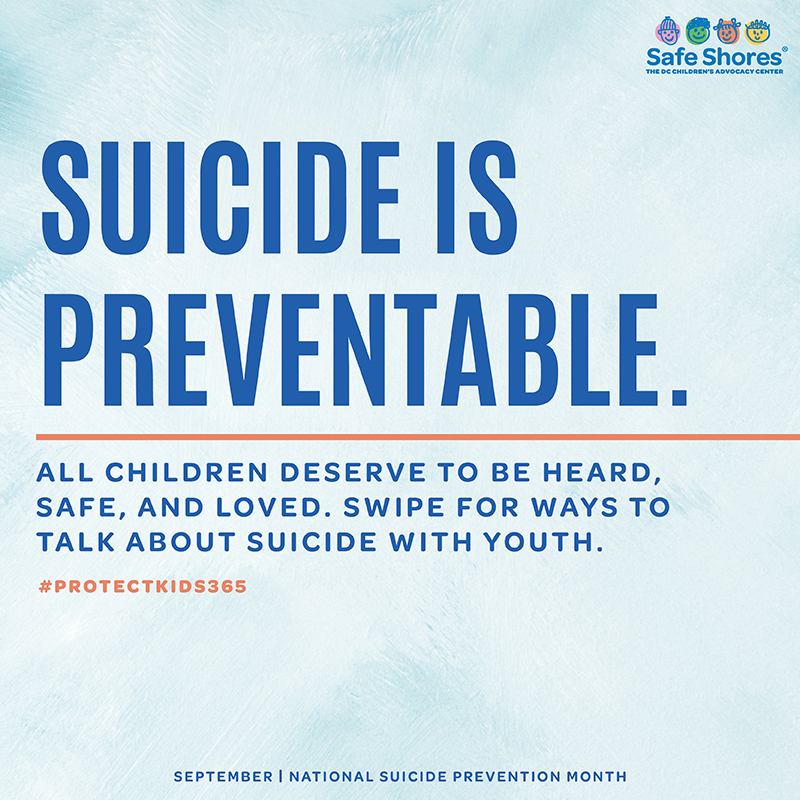
Two important facts: 1. Suicide is one of the leading causes of death for teenagers in the United States, and 2. It’s PREVENTABLE.
For adults, talking with children and teens about suicide may seem extreme and feel difficult, but it could literally save a life. With so much at stake, it’s important to know what to say, and there are experts to help us have conversations about mental health and suicidal ideation (thinking about suicide). Let’s not allow fear or discomfort stand in the way. Have the conversation. A young person’s life might depend on it.
Scroll down to learn ways to talk about suicide with kids.
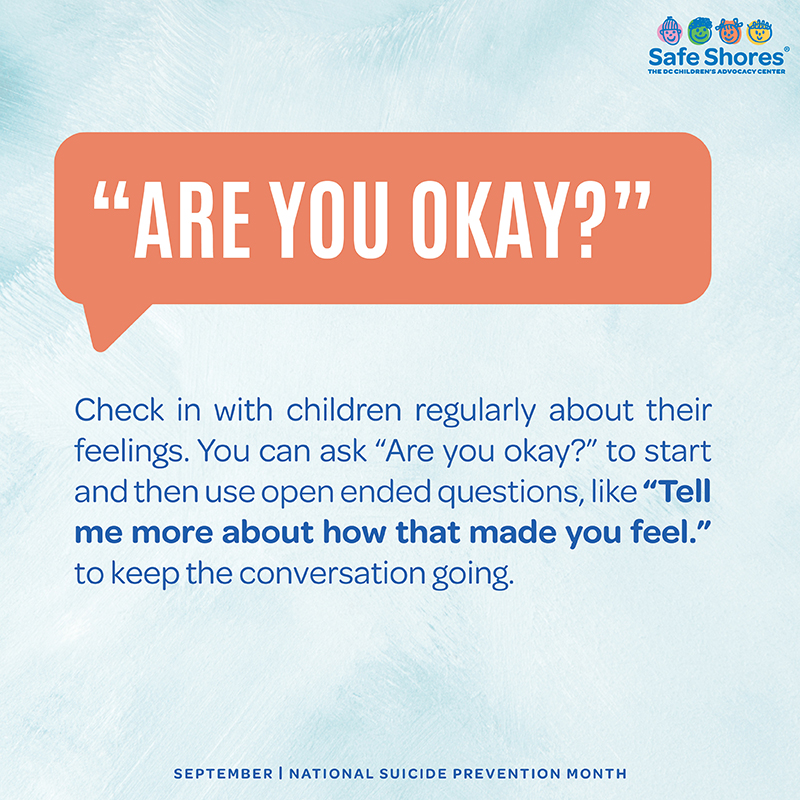
Ask: “Are you okay?”
Check in with children regularly about their feelings. You can ask “Are you okay?” to start and then use open ended questions, like “Tell me more about how that made you feel.” to keep the conversation going.
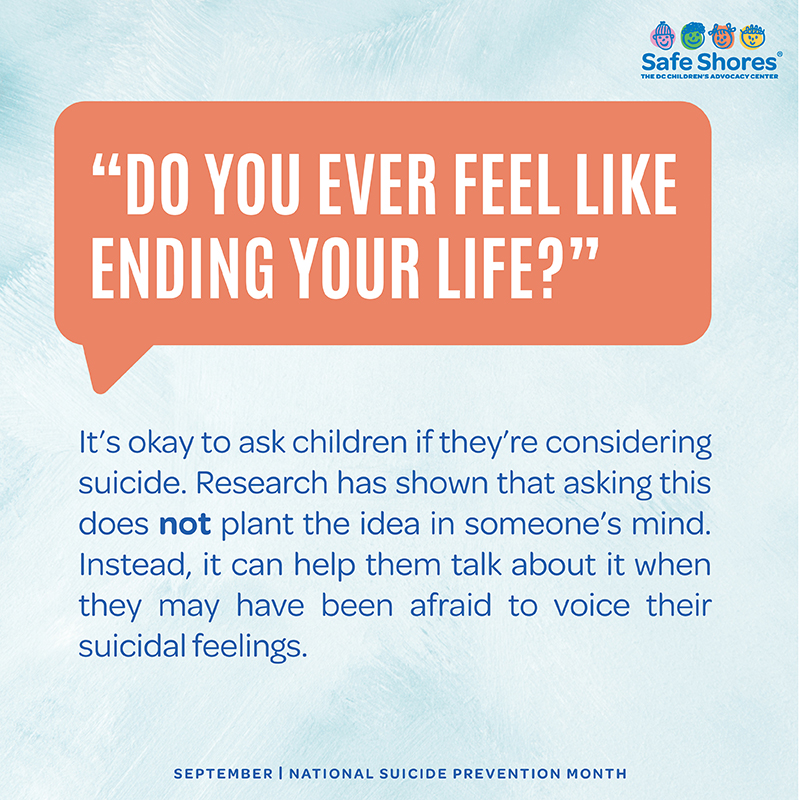
Ask: “Do you ever feel like ending your life?”
It’s okay to ask children if they’re considering suicide. Research has shown that asking this does not plant the idea in someone’s mind. Instead, it can help them talk about it when they may have been afraid to voice their suicidal feelings.
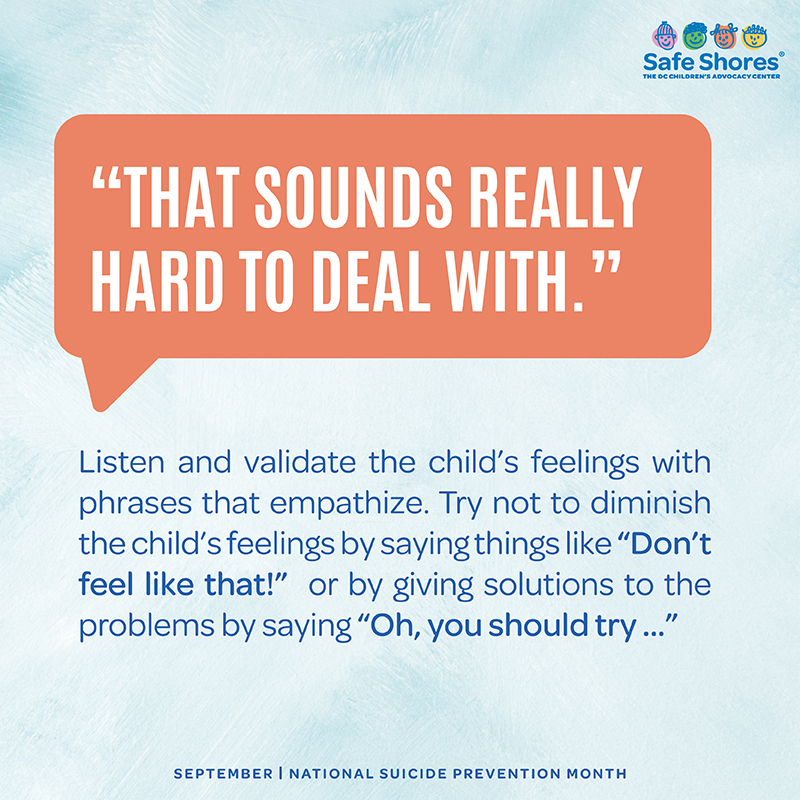
Say: “That sounds really hard to deal with.”
Listen and validate the child’s feelings with phrases that empathize. Try not to diminish the child’s feelings by saying things like “Don’t feel like that!” or by giving solutions to the problems by saying “Oh, you should try …”
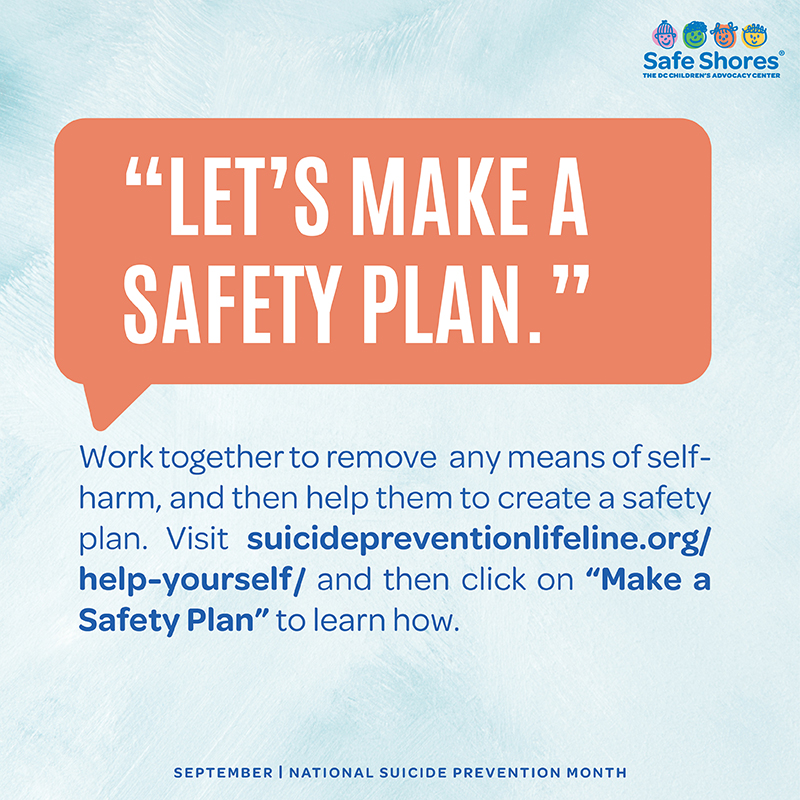
Say: “Let’s make a safety plan.”
Work together to remove any means of self-harm, and then help them to create a safety plan. Visit suicidepreventionlifeline.org/help-yourself/ and then click on “Make a Safety Plan” to learn how.
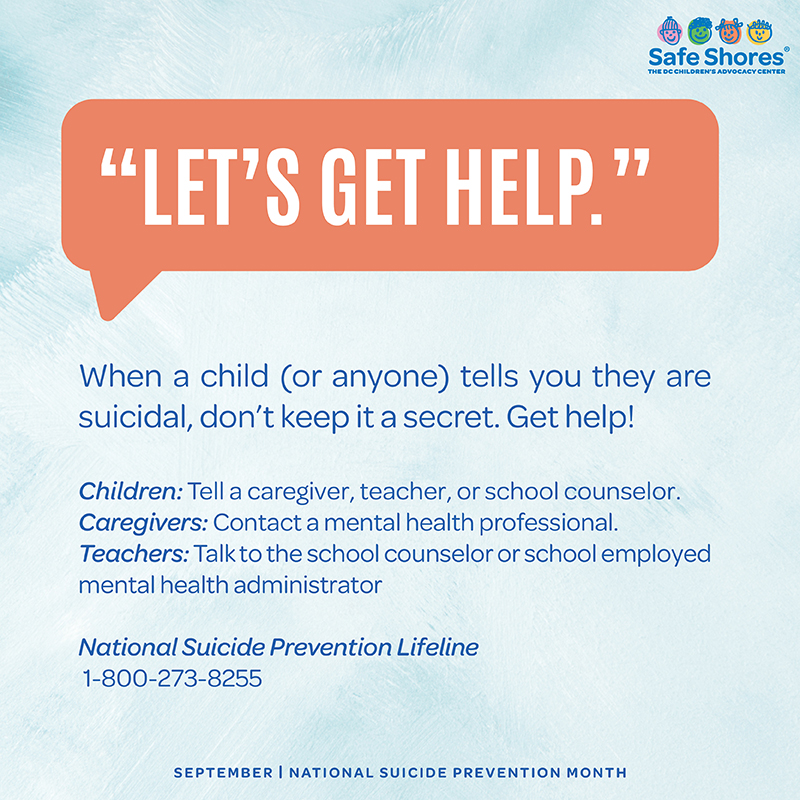
Say: “Let’s get help.”
When a child (or anyone) tells you they are suicidal, don’t keep it a secret. Get help!
Children: Tell a caregiver, teacher, or school counselor.
Caregivers: Contact a mental health professional.
Teachers: Talk to the school counselor or school employed mental health administrator
National Suicide Prevention Lifeline: 1-800-273-8255
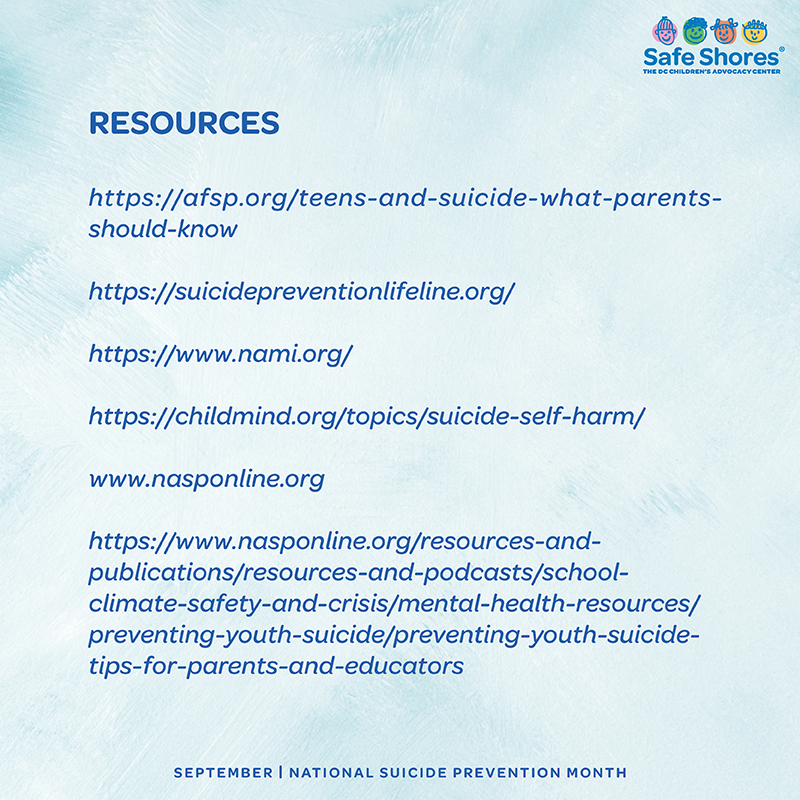
Resources
National Suicide Prevention Lifeline
Child Mind Institute
National Association of School Psychologists
